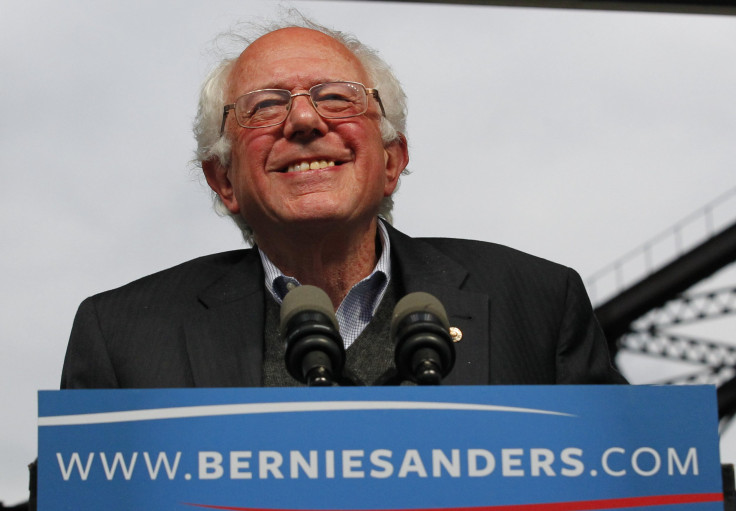Bernie Sanders News: Democratic Presidential Candidate Wants Ban On For-Profit Charter Schools

Sixty-five years after the Supreme Court ruled separate but equal public schools were unconstitutional, Vermont Sen. Bernie Sanders, the first Democratic candidate for president to speak on the issue, called for a federal ban on for-profit charter schools when addressing education policy Saturday in South Carolina.
Charter schools, which came into vogue during the Reagan-Bush era, are public schools that are privately run. Proponents of charter schools say they allow educators to innovate and provide more successful learning outcomes than underfunded and long-neglected inner-city schools. They argue charter schools allow students from disadvantaged communities to benefit from the usually smaller class sizes and mix of students from various socioeconomic backgrounds.
If I'm elected president, we'll create a national minimum that must be spent per-pupil to educate our kids.
— Bernie Sanders (@BernieSanders) May 18, 2019
No matter where you live, whether your community’s property values are high or low, your kids' schools will be guaranteed a certain minimum level of education funding.
However, unlike public schools, which cannot turn away a student, charter schools can pick and choose what students they admit. Further, they also can more easily expel students, for a variety of reasons, which directly contradicts proponent’s arguments that low-income students of color benefit from charters. Significant academic research shows low-income students are doubly disadvantaged by charter schools, in that if they are unable to attend them, the charters siphon off already-scarce public funding from public schools that can’t refuse students.
Another reason proponents like charters is they are relatively free from collective bargaining arrangements with teachers unions, and as a result teachers have little or no job security. Sanders also intends to call for uniform regulation of charters in line with the regulations to which public schools must adhere.
In 1954, the Supreme Court, in deciding Brown v. Board of Education of Topeka, Kansas, found unconstitutional what had been referred to as separate and equal, though segregated public schools. Historically Black Colleges and Universities (HBCUs) were few and notoriously underfunded by the states in which most of them operated, primarily in the South. Elementary schools were even more scarce.
That is, until Julius Rosenwald, founder of Sears and Roebuck Co., teamed up with ex-slave and intellectual, Booker T. Washington, to build 5,200 K-12 black schools throughout the South. Once built, however, states often diverted funds away from the black schools.
Out of 35 major countries the U.S. ranks 30th in math, 24th in reading, and 19th in science.
— Bernie Sanders (@BernieSanders) May 18, 2019
Let me be as clear as I can: as the wealthiest country in the history of the world there is no reason we shouldn't have the best education system in the world.
Sanders, in his policy announcement, pledged if elected president to stop using taxpayer dollars for charter school expansion.
“Our school system can no longer put up fences for black and brown children,” Sanders argued in an op-ed published Friday.
The NAACP, National Education Association (NEA), and American Federation of Teachers (AFT), have been critical of charters since one in five have a 99% minority population. In short, charter schools that admit students of color are predominantly attended by students of color.
Sanders’ efforts to target charters and expose their contribution to increased segregation is an opportunity to differentiate himself from other Democratic candidates, particularly frontrunner, Joe Biden, whose brother is a former executive of a company that developed charter schools. The Obama administration also was supportive of charter schools, as have been other Democratic presidential hopefuls, including New Jersey Sen. Cory Booker.
Betsy DeVos is the worst Secretary of Education in the modern history of our country. We need an Education Secretary who is a fierce advocate for public education and working class children and works to integrate our schools—not who is doing everything she can to undermine them.
— Bernie Sanders (@BernieSanders) May 18, 2019
Education Secretary Betsy DeVos has been a longtime proponent of charter schools and along with her husband has spent millions of dollars promoting the charter movement in their home state of Michigan. Roughly 6% of public-funded students attended nearly 7,000 charters nationwide in 2018. That’s a 5% uptick over the previous year.
© Copyright IBTimes 2025. All rights reserved.





















